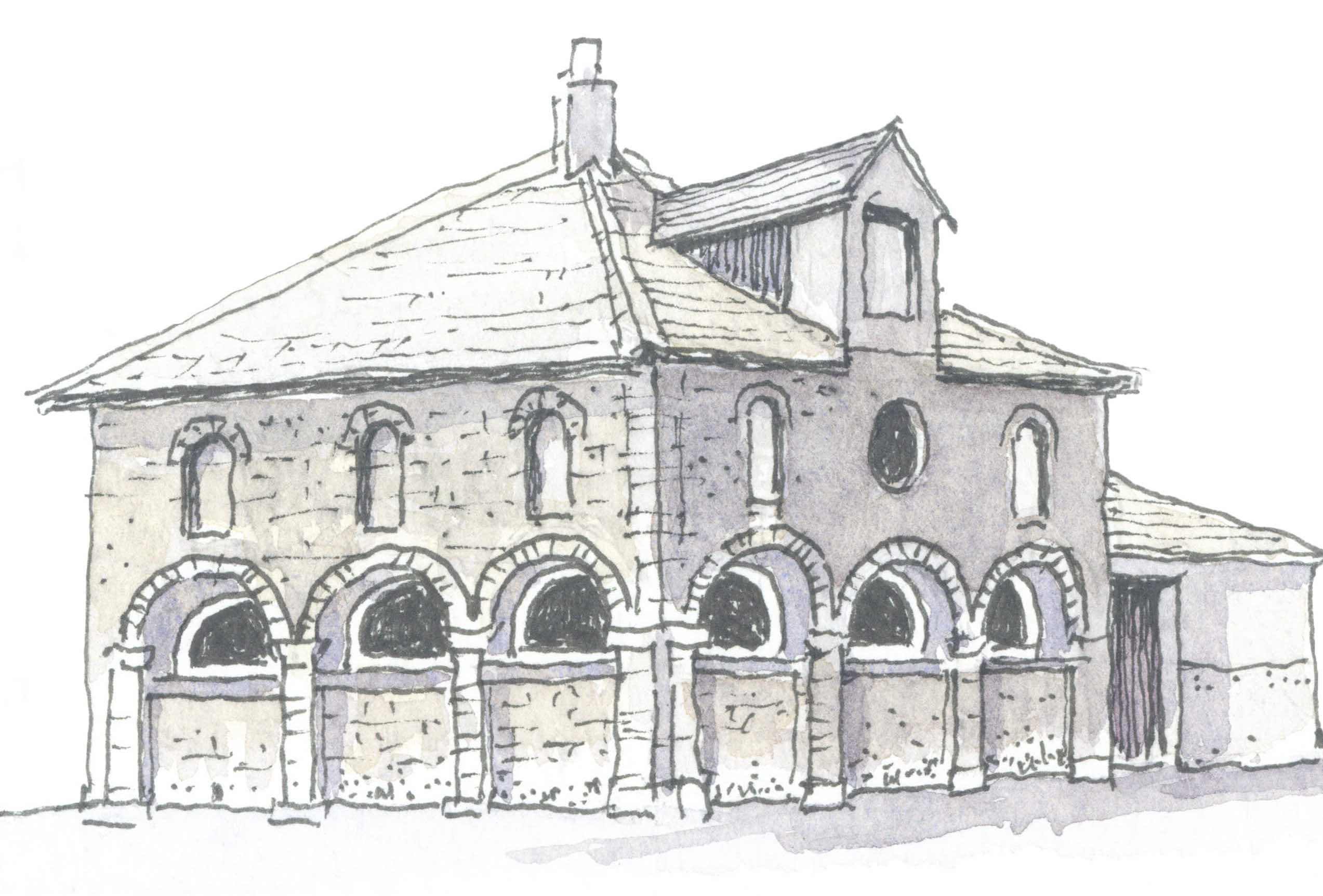Shap Local History Society met in the Memorial Hall and were welcomed by Vice Chairman Jean Scott-Smith who introduced Dr Rob David from Kendal, who spoke about holidaying in the Lake District during the 1940s and 50s.
He began by listing ten types of holidays starting with those using a caravan, he described the different caravans and gave a graphic description of the shared latrines. He also shared an account of a family of children who were allowed to stay in a caravan on a farm without their parents.
Camping often began through Scouting and Guiding when the equipment would be moved by a vehicle such as a removal van, whilst the people walked considerable distances. Some accounts mentioned staying on land owned by Beatrix Potter. Individuals would take their camping equipment by motorcycle and sidecar.
Various organisations formed that provided facilities and organised holidays. Many were started in the mill towns of Yorkshire.
The Co-operative Holiday Association (CHA) founded in 1893 and Holiday Fellowship (HF) formed in1912 for ‘poorer folk’. The HF leased large houses in places such as Keswick, Sedbergh and Alston, at Wall End in Langdale they used Nissan huts. The accommodation was cheap, spartan and included activities, or people could do their own thing.
The CHA had bases at Eskdale, Grasmere, Kirkby Lonsdale, Borrowdale and Ambleside; they were aimed at the working class but appealed to the middle class. Their holidays were very organised with set timetables; in the 1930s the routine for the week included four days of fairly challenging walks ranging in length from 10 to 20 miles, with one ‘free’ day when there was a choice of bathing or a tour.
The Cyclist Touring Club promoted cycling holidays for young men and women from Yorkshire into the dales of instance where they would be accommodated in guest houses and barns.
The Youth Hostel Association was formed in 193, there were hostels all around the Lakes with Black Sail being one of the most remote. Stories tell of how dances would be held there, when all the furniture was carried out onto the fellside to make room for dancing!
Mountaineering clubs were formed, they had club huts, shared transport and equipment, and this allowed for experienced people to teach the young people how to climb.
Wallace Arnold day trips were popular, these would involve day trips into the Lakes usually to Bowness, where people would have their photographs taken at booths on the pier.
Another development were camping coaches, adapted railway carriages parked in sidings. In a similar vein were abandoned trams that were converted to provide accommodation.
Bed and breakfast establishments would receive bookings by letter, for many had no telephone, and some had no electricity, the proprietors having to hand wash everything and cook on coal fires. Some would move their family out of their bedrooms for the season to make them available for guests, the family members often sleeping in the attic.
Mr David’s parents had holidayed at the Strand Hotel run by the Smith family in Nether Wasdale during the 1940s and his mother wrote two booklets about the hotel; she also kept holiday diaries describing day to day activities. One described the journey when they took their bicycles from Euston to Seascale by train; it describes leaving London as it was under attack from V1 flying bombs and stopping at Barrow for fish and chips. The fortnight would be split between two bases, one week always being spent at the Strand, and other places included Rydal, Ambleside and Newby Bridge.
In 1955 the David family took their first car holiday, their mother was the only driver, their car was a 1938 Ford Prefect with semaphore indicators. The family travelled from Chester to Rydal for one week, then on to the Strand for the second week. Mr David described the heavy traffic in Lancaster and the tail backs at Levens Bridge traffic lights. He then described activities he and his sister enjoyed in Wasdale including his ascent of Great Gable at the age of eight. These holidays involved long journeys to and fro.
Finally he gave his mothers description of the Strand as being run in a very Edwardian fashion, it was furnished with large pieces of furniture, guests were provided with the finest linen, and impeccable table settings. Mr David himself recalled it being very quiet with dark corridors.
Members of the audience shared memories of their holidays, with one lady recalling her mother taking guests at their home in Borrowdale, when she had to vacate her bedroom for guests, and one man recalling cycling holidays.
